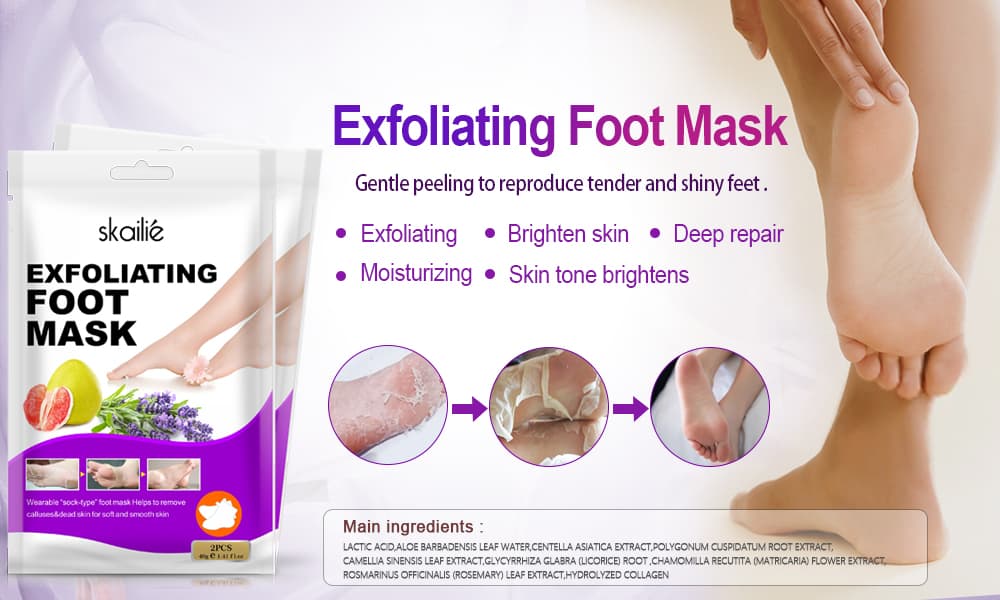Foot peel masks are designed to provide intensive care and rejuvenation for the skin on the feet. They are usually made of materials like fabric or plastic, with the inner layer soaked in a blend of moisturizing, exfoliating, and nourishing ingredients. Some common ingredients found in foot masks include shea butter, glycerin, urea, fruit acids, herbal extracts, and essential oils.
Deep Hydration: Foot masks are formulated to deliver intense hydration to dry and rough foot skin. The occlusive nature of the mask helps to lock in moisture and allows the active ingredients to penetrate deeply, softening the skin and preventing further moisture loss.
Exfoliation and Callus Reduction: Many krean foot masks contain exfoliating agents, such as fruit acids or enzymes, that help to remove dead skin cells and smooth rough patches. This can contribute to the reduction of calluses and reveal smoother, more supple skin.
Nourishment and Repair: The nourishing ingredients in foot masks, such as shea butter and botanical extracts, provide nutrients that can support skin repair and rejuvenation. These ingredients may help to soothe and revitalize tired and stressed feet.
Relaxation and Self-Care: Applying a foot mask can create a sense of relaxation and indulgence. The cooling and soothing sensation, along with the opportunity to take a break and pamper your feet, can contribute to a positive self-care experience.

While foot masks offer potential benefits, it's important to consider the following factors:
Severity of Foot Issues: Foot masks are generally designed for mild to moderate foot concerns. If you have more severe foot problems, such as deep calluses or infections, it's advisable to consult a healthcare professional for appropriate treatment.
Consistency and Follow-up Care: Foot masks provide temporary results and are best used as part of a regular foot care routine. Consistent use, along with ongoing maintenance and moisturization, is crucial for maintaining the effects of the mask.
Individual Skin Sensitivity: Some individuals may have skin sensitivity or allergies to certain ingredients found in best foot masks. It's important to read the product labels and perform a patch test before applying the mask to ensure compatibility with your skin.
Additional Foot Care: Foot masks should be complemented with other foot care practices such as regular cleansing, moisturizing, and wearing appropriate footwear. These practices contribute to overall foot health and help to maintain the results achieved with the foot mask for dead skin .
Foot masks can provide temporary hydration, exfoliation, and nourishment to the skin on your feet. They offer a relaxing and enjoyable self-care experience, contributing to foot health and softness. However, it's crucial to have realistic expectations and understand the limitations of foot masks. For more severe foot issues, professional intervention may be necessary. Incorporating foot moisturizing masks into a consistent foot care routine, along with other foot care practices, can help you achieve and maintain healthier and smoother feet. Remember to choose products suitable for your skin type, consider any allergies or sensitivities, and enjoy the indulgent experience of caring for your feet.
No comments:
Post a Comment